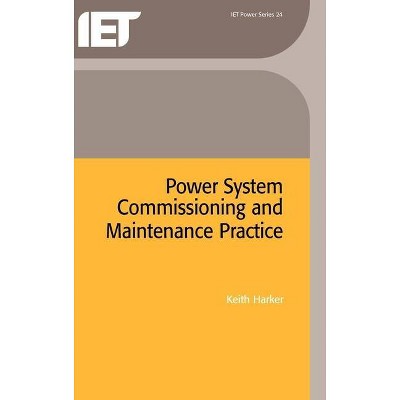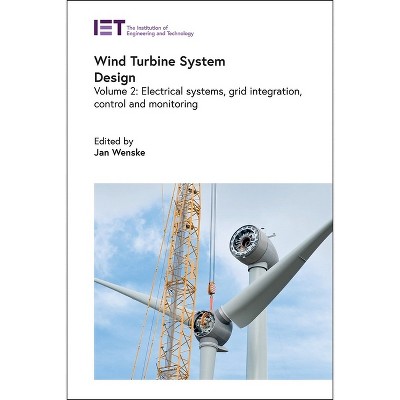Artificial Intelligence Techniques in Power Systems - (Energy Engineering) by Kevin Warwick & Arthur Ekwue & Rag Aggarwal (Hardcover)

About this item
Highlights
- Research in artificial intelligence has developed many techniques and methodologies that can be either adapted or used directly to solve complex power system problems.
- Author(s): Kevin Warwick & Arthur Ekwue & Rag Aggarwal
- 320 Pages
- Computers + Internet, Computer Engineering
- Series Name: Energy Engineering
Description
About the Book
Research in artificial intelligence has developed many techniques and methodologies that can be adapted or used directly to solve complex power system problems.
Book Synopsis
Research in artificial intelligence has developed many techniques and methodologies that can be either adapted or used directly to solve complex power system problems. A variety of such problems are covered in this book including reactive power control, alarm analysis, fault diagnosis, protection systems and load forecasting. Methods such as knowledge-based (expert) systems, fuzzy logic, neural networks and genetic algorithms are all first introduced and then investigated in terms of their applicability in the power systems field. The book, therefore, serves as both an introduction to the use of artificial intelligence techniques for those from a power systems background and as an overview of the power systems implementation area for those from an artificial intelligence computing or control background. It is structured so that it is suitable for various levels of reader, covering basic principles as well as applications and case studies. The most popular methods and the most fruitful application fields are considered in more detail. The book contains contributions from top international authors and will be an extremely useful text for all those with an interest in the field.
Review Quotes
'This book is a useful introduction to the field of AI for power engineers [and] presents several meaningful case-studies that will help practioners in deciding which directions are worthy of further investigation and near-term success.'
-- "IEEE Computer Applications in Power"










